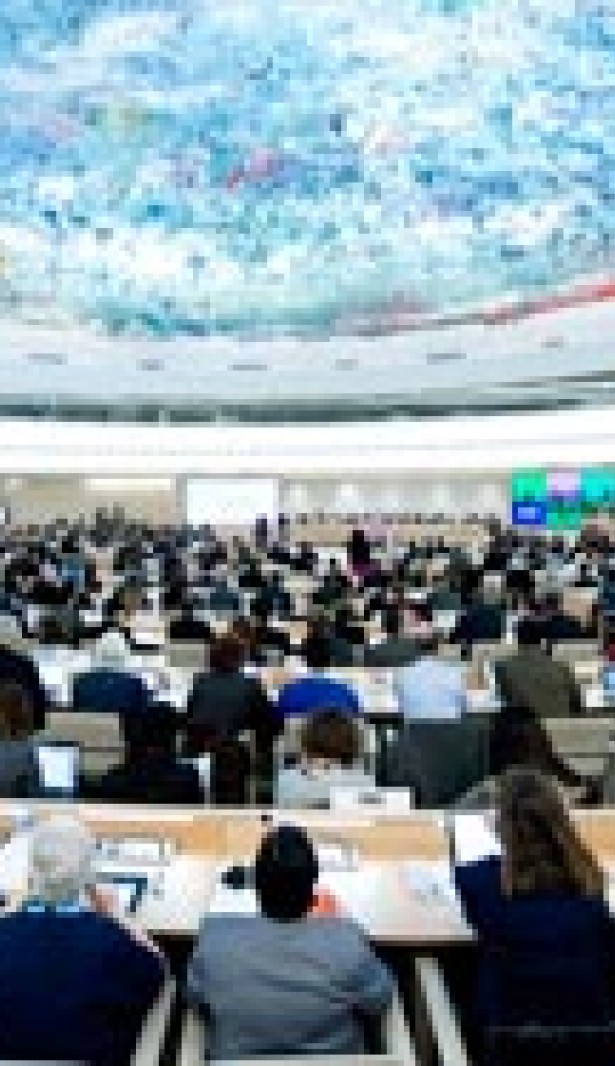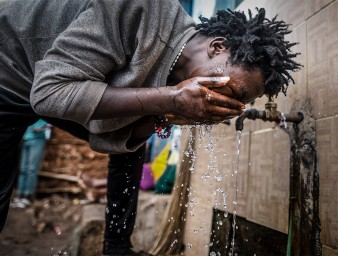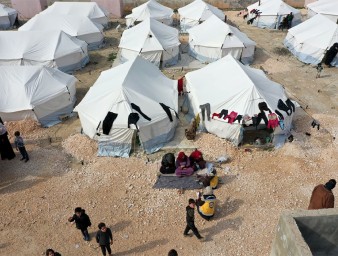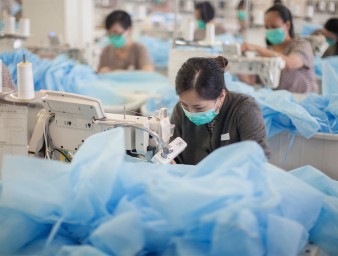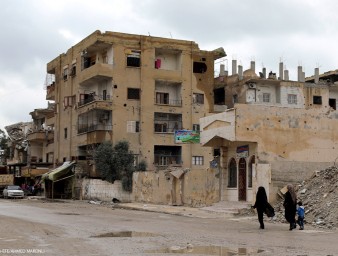Syria: “an intolerable affront to the human conscience”
28 May 2013
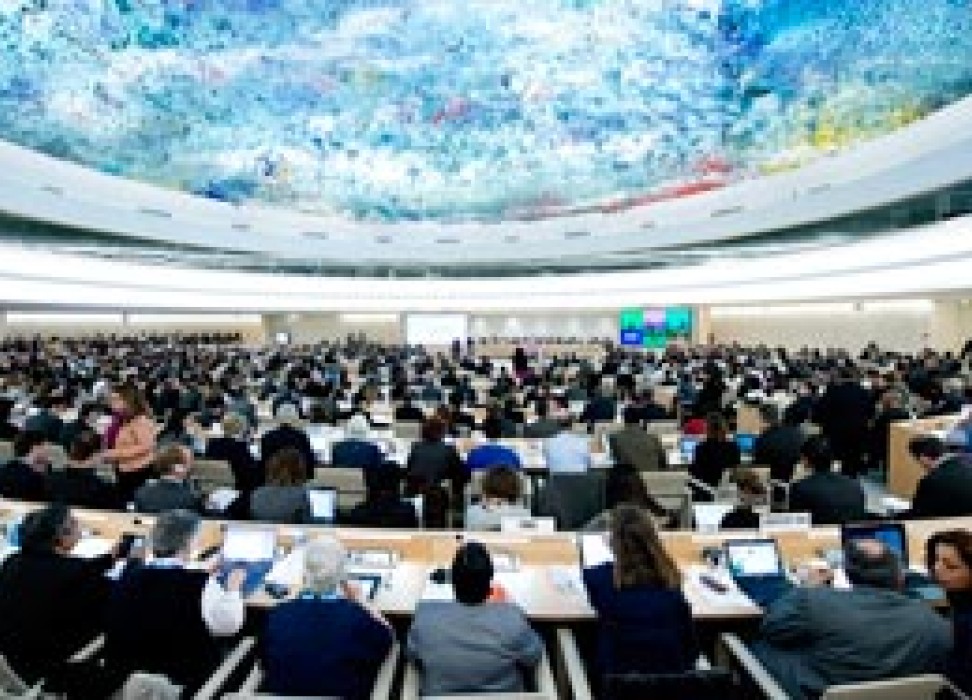
The Human Rights Council opened its 23rd session today in Geneva, with UN Human Rights Chief Navi Pillay expressing dismay at the situation in Syria, which “after 26 months has become an intolerable affront to the human conscience.”
Pillay said that the international community seems unable to make a strong commitment to resolving the crisis and urged States to make every effort to “forge an end to this humanitarian disaster, for it sometimes seems that we can do little more than cry out in the darkness and try to count the dead.” She also urged the Security Council to refer the Syrian crisis to the International Criminal Court.
An urgent debate on Syria was held on 29 May in the framework of the Human Rights Council. “Immediate action to stop further bloodshed and suffering is needed,” said Pillay in her statement. “This urgent debate provides an opportunity for the international community to review its approach. It is also an opportunity for individual States and other actors to do some soul-searching. States with influence on both sides must pull together to stop this conflict, instead of pursuing opposing paths that have so far simply contributed to the spiraling devastation of Syria.”
The Human Rights Council is holding its twenty-third regular session from today, 27 May, to 14 June 2013 at the Palais des Nations in Geneva. A wide range of human rights issues will be addressed throughout the session, including over 40 country situations and some 50 specific themes among the more than 100 reports to be presented.
In her address to the Council, Pillay also expressed concern over the United States’ failure to shut down the Guantamano detention centre where, allegedly, more than half of the 166 detainees still being held in detention have been cleared for transfer to either home countries or third countries for resettlement. “The continuing indefinite detention of many of these individuals amounts to arbitrary detention, in breach of international law, and the injustice embodied in this detention centre has become an ideal recruitment tool for terrorists,” said Pillay.
Pillay was also concerned by the human rights implications of the use of armed drones in the context of counter-terrorism and military operations.
She urged all States to be completely transparent regarding criteria for deploying drone strikes, and to ensure that their use complies fully with relevant international law. “Where violations do occur,” she said “States should conduct independent, impartial, prompt and effective investigations, and provide victims with an effective remedy.”
Referring to the global financial crisis, Pillay said in her speech that even in wealthy countries that have championed the cause of human rights around the world, “those rights may be eroded or denied when the winds of economic change blow colder.” The impact of the crisis has been foisted upon those least able to absorb its costs, “thus inequalities have increased, undermining the fabric of society.”
Pillay stressed that economic policies must at all times be designed to advance the realization of economic and social rights and, in particular, States are legally obliged to ensure core minimum obligations regarding the progressively greater realization of basic rights to food, housing, health, education, decent work and an adequate standard of living. She also pointed out that, in some European countries, the ripple effects of the recession and budget cuts include “increased vulnerability to extremist and xenophobic discourse, which aims to identify scapegoats for economic pain.”
Pillay also stressed the countries situations that deserve the attention of the Human Rights Council and the UN Human Rights Office. These include attacks on Muslim communities in Myanmar, the upsurge of violence in Iraq, the human rights situation in Mali and South Sudan, the crisis in the Central African Republic, the situation in the Middle East and North Africa and the violations of Palestinians’ rights.
She also reminded the Council that earlier this month, the Optional Protocol to the International Covenant on Economic, Social and Cultural Rights entered into force. By enabling individuals to bring complaints to the Committee on Economic, Social and Cultural Rights, this instrument ensures the same protection for economic, social and cultural rights as for civil and political rights.
During a general debate following the presentation by the High Commissioner, 72 speakers took the floor, including ten non-governmental organisations, who touched upon numerous themes and country situations highlighted by Pillay.
Pillay concluded her statement by stressing the crucial role of civil society. “I must speak out to warn you of the real setbacks to human rights protection that will follow if civil society is threatened or restricted.”
During the Human Rights Council session, four thematic panel discussions will be held: on the contribution of parliaments to the work of the Council and the Universal Periodic Review; on strategies for advancing the business and human rights agenda by the United Nations system; and on common challenges facing States in their efforts to secure democracy and the rule of law from a human rights perspective.
This year’s annual full-day discussion on women’s rights will be held on Wednesday, 5 June, and will feature a presentation by the Special Representative of the Secretary-General on Sexual Violence in Conflict, Zainab Hawa Bangura, and an opening statement by the newly appointed Deputy High Commissioner for Human Rights Flavia Pansieri.
